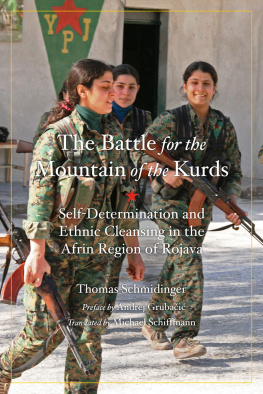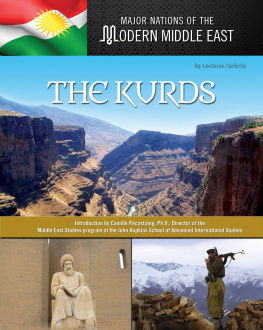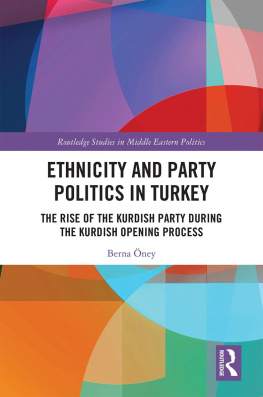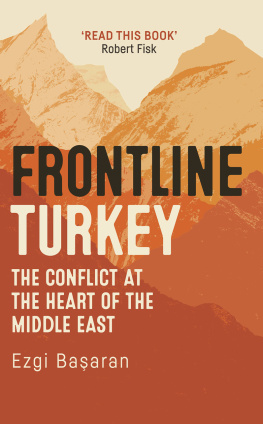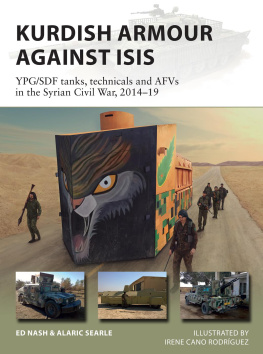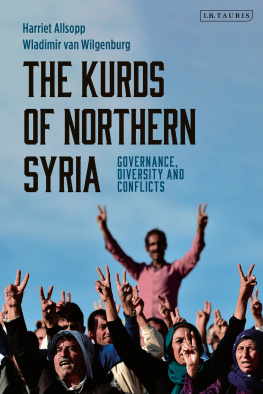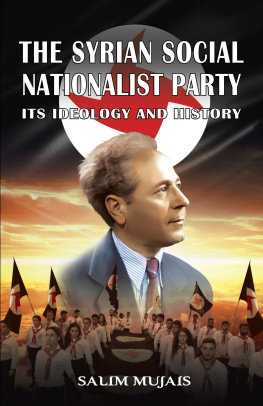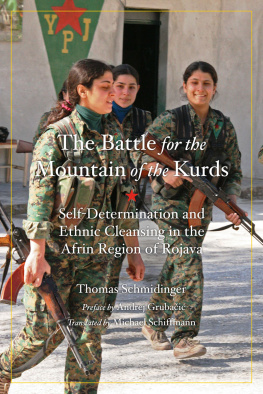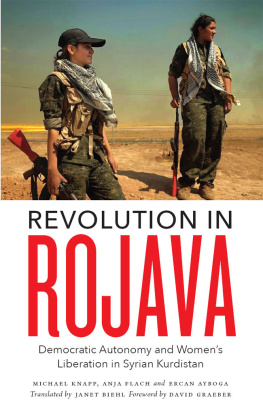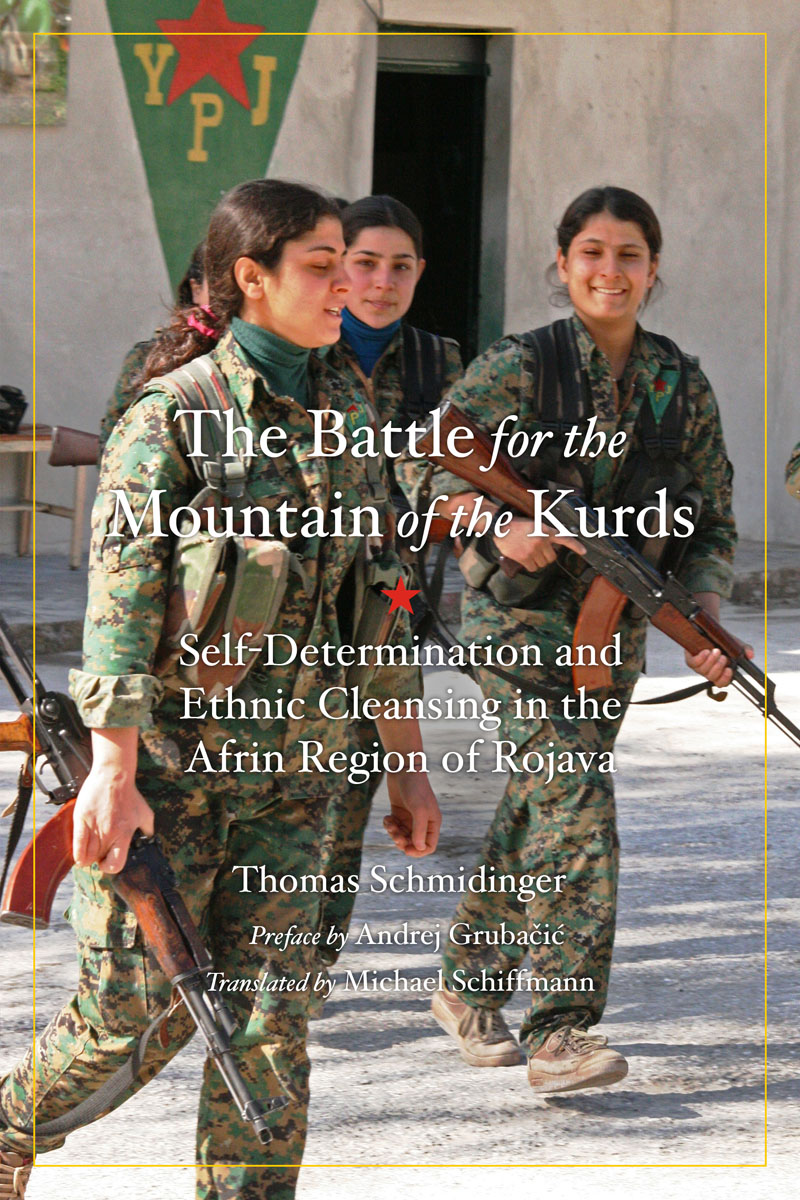
Thomas Schmidingers second book on the Syrian Kurds and their place in the Syrian conflict focuses on the enclave of Afrin, which was recently occupied by Turkey and its Syrian proxies. One of the few scholars to have actually visited Afrin in recent years, Schmidinger provides a balanced account of the various religious and ethnic groups and political forces involved, of the way self-government was organized, and of the Turkish intervention. This is essential reading for anyone wishing to understand the current situation in northern Syria.
Martin van Bruinessen, Utrecht University
Thomas Schmidingers book provides a concise, clear, and remarkably comprehensive look at the history and contemporary politics surrounding Afrin. His work offers an invaluable primer, but even readers already well versed in the issues will find a wealth of new information. And those looking for an informative and probing analysis of the issues will not be disappointed.
David Romano, Missouri State University
A late-breaking, thoughtful, political book that provides insight into the struggle of people in Western Kurdistan for survival, dignity, and peace! This study of the social history of Afrin and of the local effects of a war waged by regional and global powers exemplifies what critical social science should be about.
Andrea Fischer-Tahir, University of Marburg
Thomas Schmidinger, who visited Afrin in 2015, describes both the PYD administrative structures governing the region and the partys tense relationship with other Kurdish parties in Syria, providing a detailed overview of the politics, history, culture, and religion of a region that recently made international headlines.
Die Presse, Austria


In ancient Greek philosophy, kairos signifies the right time or the moment of transition. We believe that we live in such a transitional period. The most important task of social science in time of transformation is to transform itself into a force of liberation. Kairos, an editorial imprint of the Anthropology and Social Change department housed in the California Institute of Integral Studies, publishes groundbreaking works in critical social sciences, including anthropology, sociology, geography, theory of education, political ecology, political theory, and history.
Series editor: Andrej Grubai
Kairos books:
Practical Utopia: Strategies for a Desirable Society by Michael Albert
In, Against, and Beyond Capitalism: The San Francisco Lectures by John Holloway
Anthropocene or Capitalocene? Nature, History, and the Crisis of Capitalism edited by Jason W. Moore
Birth Work as Care Work: Stories from Activist Birth Communities by Alana Apfel
We Are the Crisis of Capital: A John Holloway Reader by John Holloway
Archive That, Comrade! Left Legacies and the Counter Culture of Remembrance by Phil Cohen
Beyond Crisis: After the Collapse of Institutional Hope in Greece, What? edited by John Holloway, Katerina Nasioka, and Panagiotis Doulos
Re-enchanting the World: Feminism and the Politics of the Commons by Silvia Federici
Occult Features of Anarchism: With Attention to the Conspiracy of Kings and the Conspiracy of the Peoples by Erica Lagalisse
Autonomy Is in Our Hearts: Zapatista Autonomous Government through the Lens of the Tsotsil Language by Dylan Eldredge Fitzwater
The Battle for the Mountain of the Kurds: Self-Determination and Ethnic Cleansing in the Afrin Region of Rojava by Thomas Schmidinger
The Battle for the Mountain of the Kurds: Self-Determination and Ethnic Cleansing in the Afrin Region of Rojava
Thomas Schmidinger. Translated by Michael Schiffmann
2019 PM Press.
All rights reserved. No part of this book may be transmitted by any means without permission in writing from the publisher.
ISBN: 9781629636511
Library of Congress Control Number: 2018948936
Cover by John Yates / www.stealworks.com
Interior design by briandesign
All photographs by the author
10 9 8 7 6 5 4 3 2 1
PM Press
PO Box 23912
Oakland, CA 94623
www.pmpress.org
Printed in the USA by the Employee Owners of Thomson-Shore in Dexter, Michigan.
www.thomsonshore.com
Contents
Foreword to the English Edition
Even though Im extremely happy that this book has met with so much interest and that there is now an English translation, since the German first edition there have been quite a few ominous developments in the region.
Since the conquest of the city and region of Afrin by Turkey and its allies, the news has been very bad. There is no access whatsoever for independent media or scholars, which makes verifying news from Afrin extremely difficult. Nevertheless, I have done my best to update this history of Afrin and to give a brief description of the events that followed Turkeys conquest of the region. A book can never be totally up-to-date, but I wanted to at least touch on the direction events have taken since March 18, 2018. The goal of this book is not just to inform the international public about how much history and culture is being destroyed but also to jolt it awake and remind it of its responsibility to the people of and from Afrin. Now that more than two hundred thousand people have been expelled from Afrin, this is an increasingly pressing responsibility.
Vienna, November 1, 2018
PREFACE
The Battle for Afrin
Let me begin with a curious paradox. Reading mainstream press, academic monographs, and leftist reports on the Middle East leaves American readers with a distinct feeling of despair. Journalists speak of the absence of democracy and modern political forms. Yet, in the middle of this region, there is a political space known to Kurds as Rojava, where democracy has been developed to an almost unprecedented degree. One could argue that democratic confederalism in Rojava is actually a more developed form of democracy than systems of representative governance that are mistakenly referred to as democracy. However strange this inclusive system of council-based, bottom-up governing practices might appear to a well-educated academic, there is little doubt that direct democratic forms and cooperative techniques developed in the stateless democracy in Syrian Rojava are a politically and sociologically remarkable example of egalitarian politics. Orientalist scholars often remind us of the grim reality of the clash of civilizations, with the Middle East serving as a paradigmatic case. However, the democratic federation of Rojava is home to a democratic nation developed to promote the peaceful coexistence of multiple ethnicities.
Humanitarian activists campaign tirelessly against the subjugation of women in the Middle East, but surprisingly there is a curious absence of reports on Rojava, whose constitution rests on three pillars: direct democracy, ecology, and liberation of women. A colleague from the Rojava University recently referred to women as the first colony. This is why any project of emancipation has to start with the history of male domination. In European press, there is an occasional mention of the remarkable courage of Kurdish womens militia, the YPJ, but these sensationalized accounts omit the existence of the refined body of thought commonly referred to as jinology, a scholarly study of womens liberation in Mesopotamia.
Next page
